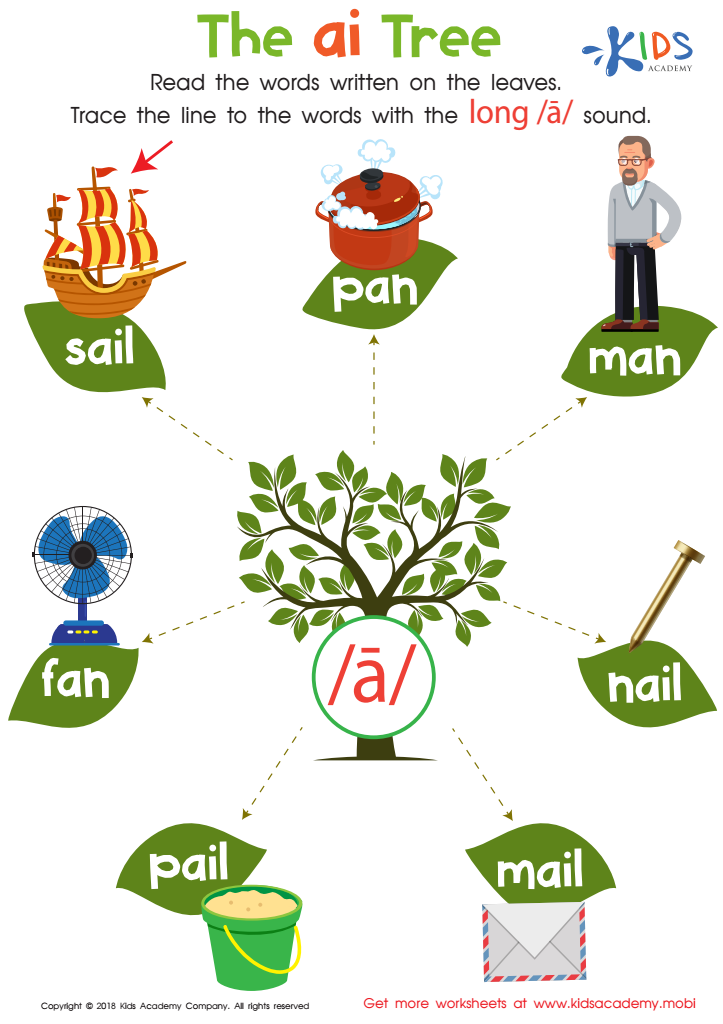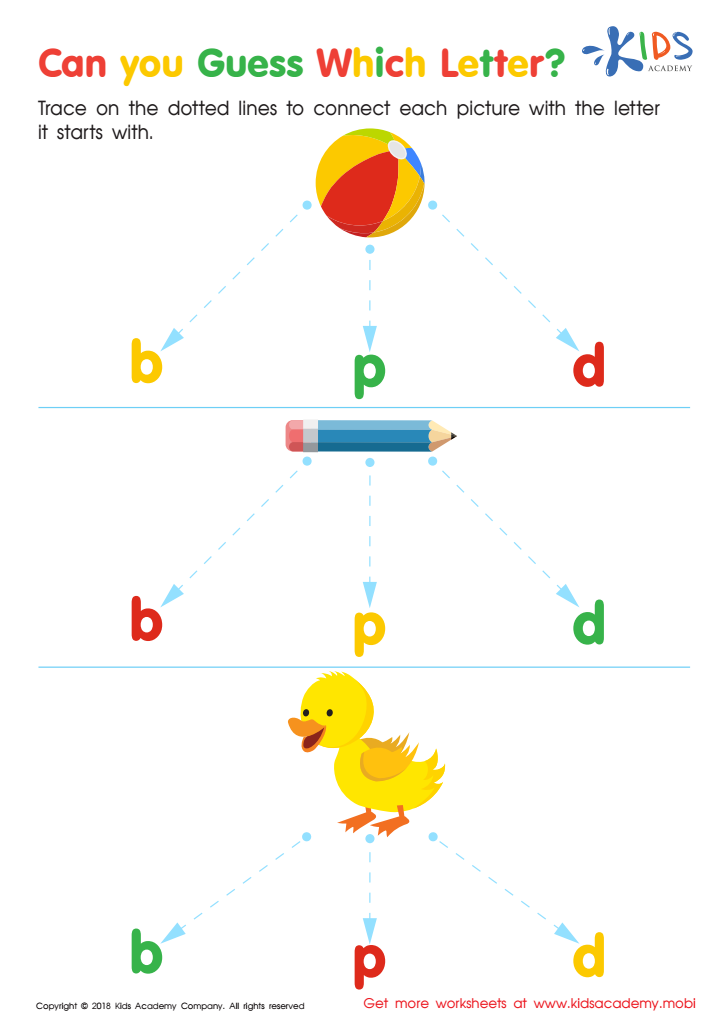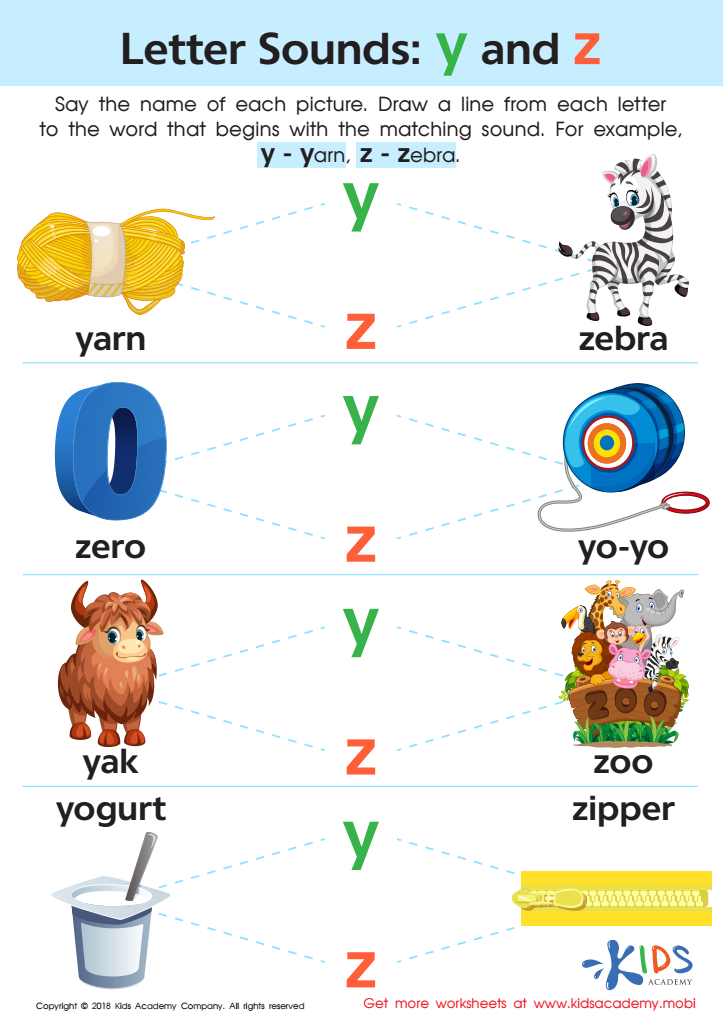Alphabet Recognition Normal Phonics Worksheets for Ages 3-6
3 filtered results
-
From - To
Discover our engaging Alphabet Recognition Normal Phonics Worksheets designed specifically for children ages 3-6! These interactive and colorful worksheets help young learners develop essential skills in letter recognition and phonemic awareness. Featuring a variety of fun activities, these resources encourage creativity and critical thinking while making learning enjoyable. Kids will practice identifying letters, following interactive prompts, and recognizing sounds associated with each alphabet letter. Ideal for home or classroom use, our worksheets support early language development and set a strong foundation for reading success. Explore our extensive collection and make learning the alphabet a delightful adventure!


The AI Tree Worksheet


Can you Guess Which Letter? Worksheet


Letter Y and Z Sounds Worksheet
Alphabet recognition and phonics are foundational skills essential for early literacy development in children aged 3-6. Understanding the alphabet promotes letter recognition, which is critical for young learners as they begin to read and write. When parents and teachers emphasize alphabet recognition, children become familiar with the shapes, names, and sounds of letters, a skill that lays the groundwork for decoding words.
Phonics, which involves connecting sounds to letters, enhances children's ability to combine sounds to form words. When children can recognize letters and understand their corresponding sounds, they gain confidence in their reading abilities. This confidence fosters a love of reading that extends beyond the classroom.
Additionally, strong foundational skills in literacy support overall academic success. Research shows that early proficiency in reading is linked to better performance in various subjects as children progress through school. By nurturing alphabet recognition and phonics, parents and teachers empower children to communicate effectively, express themselves creatively, and engage with materials that ignite their curiosity.
Engaging in activities that promote these skills—such as reading aloud, singing alphabet songs, or playing letter-based games—creates a fun and enjoyable learning environment, ensuring that literacy development is a positive experience.
 Assign to My Students
Assign to My Students














